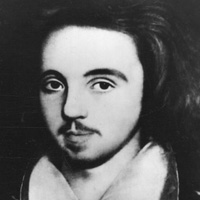The Passionate Shepherd to His Love by Christopher Marlowe: Summary and Analysis
The Passionate Shepherd to His Love is a famous pastoral song which generally sung to praise the rural life in the lap of nature. Pastoral poems are generally composed for the beloved of the shepherd, or on the death of the close friend or on the longing of the simple pleasurable life of the rustic setting. This lyrical poem is written in iambic tetrameter in six stanzas, each containing four lines.

Christopher Marlowe (1564-1593)
The poem commences with a request to the beloved of the speaker to come to live with him and be his love. He tries to persuade her by implying that the geography of the England like valleys, groves, hills, and fields, woods, or Steep Mountain will be the greatest places for the lovers to enjoy nature.
From the second stanza to the fifth stanza, the speaker makes many promises to the lady of his love in order to get her love and accompany. He promises to provide her all types of the physical entities to make her happy and pleased if only she accepts his proposal of love. He states that they will sit upon rocks and watch the shepherd grazing the cattle and sometime by the riverside to listen to the melodious song of birds. He offers her the ‘bed of roses’, ‘thousand fragrant posies,’ ‘cap of flowers,’ ‘kirtle embroidered with leaves of myrtle,’ ‘gown made of the finest wool/Which from our pretty lambs we pull,’ ‘fair-linèd slippers,’ ‘buckles of the purest gold,’ ‘belt of straw and ivy buds,’ ‘coral clasps,’ and ‘amber studs’. Here the speaker offers his lady love the objects from both worlds: nature and man-made so as to be confirmed that she will receive the best of all the things. In the concluding stanza, the speaker finalizes his opinion saying that if she is convinced by the lists of the pleasures that he promised to provide her, then she can come and be his love.
This short lyrical poem starts with the general request, but ends with the conditional sentence. There is no reply of the lady, so there is no guarantee that the shepherd will get the love of the lady. The speaker of the poem does not seem to be a real shepherd as he offers many things of luxury to his lady love. Those fanciful lists of gifts could only be offered by the member of aristocrats or the merchants of the town. The doubt that the shepherd is an elite becomes clear in the last stanza when he said "The shepherd swains shall dance and sing/For thy delight each May-morning."
The image of generous earth and nature is one of the themes of the pastoral poetry. Another significant theme of the poem is the Carpe diem, which means seize the day. Nothing is certain, so live in the present and enjoy the day is the major functioning theme of the then era. Influenced by this theme, Marlowe also makes his speaker, enjoy the day and his youth and also urges his lady to enjoy the pleasures of life without any hesitation.
